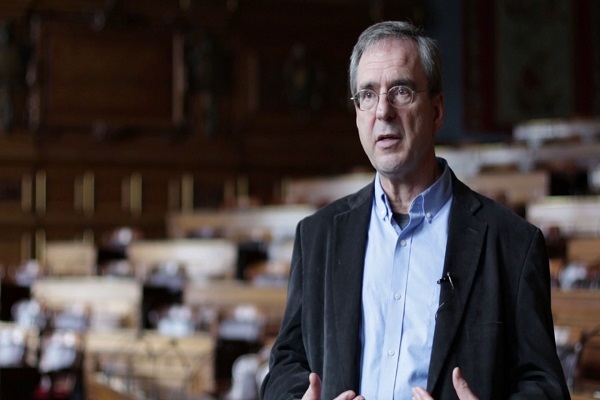No ‘Unified’ Int’l Action Expected to Settle Conflict in Palestine: Author

“We are living in a multipolar world in which the rules-based order created after WWII is breaking down. This means that we will not see any unified or strong international action that would serve to bring a just peace to the Israeli-Palestinian conflict,” Joost R. Hiltermann told IQNA in an interview.
Hiltermann is MENA Program Director at International Crisis Group. He was previously its Chief Operating Officer.
Here is the full text of the interview:
IQNA: In recent weeks, we saw an increase in tensions between Israel and the Palestinians. What is the reason for this unprecedented increase in tensions, especially in the month of Ramadan?
Hiltermann: It is not unprecedented. It has happened many times before. It happened, for example, in 2021, and the violence was much worse then. The coincidence of Ramadan and Passover doesn’t help, as holy sites of Muslims and Jews in Jerusalem are interwoven.
IQNA: Some believe that the continuation of tensions and building settlements by Tel Aviv confirm the failure of two-state solution. What is your take on this?
Hiltermann: Israel’s settlement enterprise and its extension of infrastructure and administrative control and judicial oversight to the occupied territories, while at the same time undercutting the power of the Palestinian Authority, is making a two-state solution increasingly difficult to envision. Many people say it is already no longer possible. (For example, here.)
IQNA: To what extent do you think these tensions are related to the recent controversial judicial overhaul?
Hiltermann: Everything is somehow related in the overall conflict, but the current flare-up in tensions is mainly a product of recent events at Al-Aqsa, and the response to these events from Palestinians in the occupied territories, and from groups like Hamas and Hezbollah in Lebanon. Of course, the main advocates of judicial reform in Israel are precisely the people who want to drive Palestinians out of Jerusalem and other parts of Palestine. But any attack on Israel now could serve to unify Israelis at a time when they are deeply divided. This is why Hamas, in particular, has been very cautious in its response to Israeli actions at Al-Aqsa.
IQNA: The policies of Netanyahu's cabinet can lead the Palestinians to the third intifada. How do you see this?
Hiltermann: These days, people like to talk about a third intifada as if it is an inevitability. But they forget that for a popular uprising to occur, you need not only a trigger (of these, there are many, almost on a daily basis) but also a structure for sustaining popular action. This we saw in the first intifada (local PLO-linked leadership in the occupied territories) and also in the second intifada (PLO and Hamas, each in its own way). Currently, there is no unified Palestinian leadership that could give structure to popular fury. I think it’s therefore more likely that we’ll see continuous but fragmented resistance to the occupation.
IQNA: Some experts believe the absence of elections in Palestine after 2006 is among reasons behind increasing Israeli pressures on Palestinians. What is your take on this?
Hiltermann: If these experts mean that Israel can be more successful in its occupation due to the fact that the PA is losing legitimacy as a result of poor governance and Palestinians' inability to replace the PA through elections, then the answer is yes. But Hamas is faring no better.
IQNA: In your opinion, what measures should be taken by the international community to change the situation of the Palestinians?
Hiltermann: There is no such thing as the international “community”. We are living in a multipolar world in which the rules-based order created after WWII is breaking down. This means that we will not see any unified or strong international action that would serve to bring a just peace to the Israeli-Palestinian conflict. Israel is taking advantage of this reality by advancing its settlement enterprise and making bilateral deals with Gulf Arab states that neutralize these states with respect to the conflict. Yet the Palestinians are not going away, and they will continue to resist the injustices they face on a daily basis with all the resources they can muster. Peace in the form of a just and lasting solution is far off.
Interview by Mohammad Hassan Goodarzi
The views and opinions expressed in this interview are solely those of the interviewee and do not necessarily reflect the view of International Quran News Agency.



